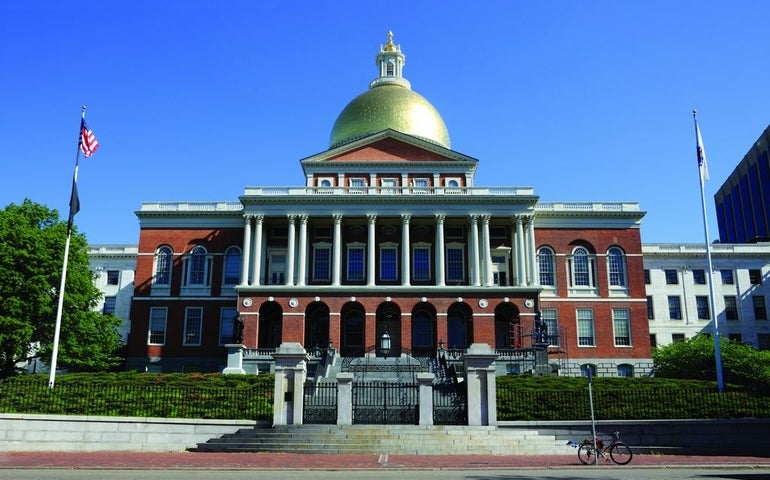Massachusetts slipped to 36th among states in a business tax climate index released this week by a foundation that promotes lower tax burdens, raising questions about the state’s business investment appeal.
The ranking comes as House Democrats are cobbling together a package of revenue-raising ideas, which could hit the business sector, to develop new sources of financing for expensive public transportation improvements. Beacon Hill Democrats are also advancing a constitutional amendment imposing a surtax on the state’s wealthiest households that supporters say would draw more than $2 billion a year into the state’s coffers.
In newly sizing up Massachusetts, The Tax Foundation pointed out the state’s adoption of a 0.63 percent payroll tax, as part of the 2018 “grand bargain” law, to fund a new paid family and medical leave benefit program, as well as the reduction in the state’s income tax rate from 5.1 percent to 5.05 percent.
“We consider the 0.63 percent tax an increase in the rate on wage income for purposes of the index,” the foundation wrote in its report. “The state also increased unemployment insurance rates, reestablished a sales tax holiday, and made other changes which resulted in a decline from 33rd to 36th overall on the index.”
Corporate, unemployment insurance and property tax burdens pulled Massachusetts down in the rankings, while its sales and income tax rates measured up more favorably, compared to most other states. Massachusetts ranked somewhere between 28 and 31 in the group’s five annual indexes covering 2014 through 2018.
The index is based on an analysis of 120 variables within five major tax categories, and does not take into consideration traffic congestion, public transit reliability, and housing affordability problems that Massachusetts policymakers have flagged as long-term impediments to business growth.
Elected officials in Massachusetts are weighing new taxes to accelerate infrastructure investments and make the state more hospitable to both businesses and workers. The foundation, however, leans anti-tax, believing lower tax burdens lead to greater economic growth and opportunity.
New Jersey, New York, California, and Connecticut were the lowest ranked states in the foundation’s 2020 business tax climate index. The highest-ranked states, in order, were Wyoming, South Dakota, Alaska, Florida, Montana and New Hampshire, which does not have an income or sales tax.
The absence of a corporate income, individual income or sales tax is a common factor among the highest-ranked states in the index, although Indiana and Utah cracked the top 10 list and levy all of the major tax types but with lower rates.
While property taxes and unemployment insurance taxes are levied in every state, several states function without one or more of the major taxes. Alaska has no individual income or state-level sales tax, for instance, while Florida has no individual income tax; and Montana and Oregon also have no sales tax.
Business tax relief has receded as a priority issue on Beacon Hill, where Democrats hold super-majorities in both chambers. Republican Gov. Charlie Baker made tax relief a major component of his unsuccessful 2010 campaign for governor, but edged Democrat Martha Coakley in 2014 after a campaign during which he showed an openness toward tax policy adjustments and dropped his push for reductions in broad-based taxes. Baker coasted to re-election in 2018.
According to the report, the stiffest competition states face for jobs comes from other states, with the U.S. Department of Labor reporting that “most mass job relocations are from one U.S. state to another rather than to a foreign location.”

